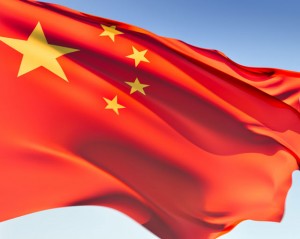Saturday
Jul172010
Afghanistan Shocker: Taliban Training Killer "Monkey Soldiers"
 Saturday, July 17, 2010 at 0:01
Saturday, July 17, 2010 at 0:01  And now a tale of the challenge that the US and international forces face in Afghanistan....
And now a tale of the challenge that the US and international forces face in Afghanistan....Recently a "British-based media agency" --- one we are still trying to track down --- put out a press release that its reporters had spotted and photographed "monkey soldiers" holding AK-47 rifles and Bren light machine guns in the Waziristan tribal region near the border between Pakistan and Afghanistan. American experts were warning of the "monkey terrorists".
Chinese media were lured in by the press release and soon its reports of the new Killer Monkey phenomenon were racing across the Web. By 9 July, the story was in China's English-language People's Daily, complete with this military analysis:
The emergence of "monkey soldiers" is the result of asymmetrical warfare. The United States launched the war in Afghanistan using the world's most advanced weapons such as highly-intelligent robots to detect bombs on roadsides and unmanned aerial vehicles to attack major Taliban targets. In response, the Taliban forces have tried any possible means and figured out a method to train monkeys as "replacement killers" against American troops.
This claim was backed up by the revelation --- well, new to me at least --- that "between the 1960s and the 1970s, the Central Intelligence Agency (CIA) trained massive 'monkey soldiers' in the Vietnam War and dispatched armed monkeys to dangerous jungles to launch assaults on Vietnamese soldiers". The report added a bit of monkey- and other creature-related psychological warfare:
Analysts believe that apart from using "monkey killers" to attack the American troops, the Taliban also sought to arouse Western animal protectionists to pressure their governments to withdraw troops from Afghanistan.
And, at the end, there was even philosophical reflection: "When armed animals enter interpersonal wars, what kind of world will we face? This cannot but arouse our reflections and concerns."
All quite amusing --- or frightening? --- but surely that was the end of the Monkey Line.
No. Dallas Blog went beyond its normal Texas market to ponder, "If President Barack Obama withdraws from the war in Afghanistan, he would be the first commander-in-chief in American history to surrender to an army of monkeys; and we’re not talking about fighting the Planet of the Apes." The very-conservative "Gateway Pundit" blog (Where Hope Finally Made a Comeback") greeted the news with an "Allahu Akbar!".
Suddenly the New York Post was declaring "Jihad Monkey!" A NATO spokesman was having to say on the record, “We have absolutely nothing that leads us to believe that this tale could be even remotely based in reality,” while a specialist on primates was brought in for this wondrous pondering:
While you could train a monkey to shoot a gun, I certainly wouldn’t want to be anywhere in the neighborhood after that. I rather doubt you could trust its aim....
But in all cases, they are trained and reinforced by giving them food treats. So the Taliban would definitely have to bring along a large supply of bananas to keep up the morale of their monkey troops.
Readers were split between those with genuine warnings of the new monkey military threat, those were confused, and those who saw an opportunity for a laugh. But the end of this Monkey's Tale awaited the concise analysis of "Eliza"....
"It's gorilla warfare!"


